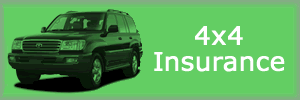For seasoned waterfowl hunters be they duck, Canadian Geese or other avian waterfowl nothing takes the place of a trusted and experienced bird dog. Simple as that. The helpfulness, instinct to please their master and intelligence as well as determination have amazed and gratified hunters since the dawn of recorded hunting endeavors. Responsible hunters will make it their primary rule that they do everything within their powers to retrieve down game birds and waterfowl. Nothing is better for this purpose than a trusted bird dog".
In choosing and training your waterfowl canine hunting companion what are the basic considerations when it comes to choosing and training your waterfowl hunting dog?
The first question often is What kind of dog is best?" Is their a certain breed, size or age? First and foremost it's a matter of training and routine. Great or even good bird hunting dogs are made, not born that way. It all depends on your situation. What are your boarding facilities that are available? What dogs are available to you both available and allowable within your financial budget afforded to your hobby and passion of hunting?? Lastly consider the type of hunting environs and game birds that you will encounter and be involved with in the hunt. Then start to make your choices.
To start off, each bird dog is a clean slate. It's up to you to train the animal best. as much as you may have seen effective retrievers in action, it is the case that these dogs did not come with the instinct intact to be bird dogs; rather they were trained in a regular and consistent fashion from day one. Not only that but training has to be repeated and reinforced again and again, over and over. It's a case of regular, ongoing and consistent lessons. Next don't make the mistake of thinking , that even though your dog impresses you with his great skills and bird dog hound dog instincts that he can be trained in the one or two week short time period before hunting season. Start to train your agent promptly the minute the dog comes into your care, then continue to train and reinforce on a most regular , ongoing and consistent basis. Practice makes perfect and there are no shortcuts to make up for hard work in training that is more than consistent and regular in nature, regularity and thoroughness.
If there is one factor to stress it is that your dog should be in good shape. Exercise your canine on a regular basis. How else can you expect your animal, not to be labored and perform best in the hunt? Next ensure that your dog has a full stomach with a good breakfast before the day begins and as well ensure that if you are not hunting over water that you keep your dog well watered less the dog become dehydrated as a matter of due course during the hunting day. If the dog is extra thirsty how he can be expected to perform top notch.
It may sound contrite but let your dog have some fun before the intense work begins. These creatures need to work off some of their energies before getting down to business. Its not all work and no play. When you are setting up for your hunt allow your retriever to run around. It's an amazing point of hunting and wildlife experience that if you do not allow your retriever to run around" they well may be too excited to listen or hunt well.
When tracking downed birds give your dog its nose. Many an experienced hunter has bet good money with his chums on where he would swear the bird or waterfowl had fallen only to see his dog or dogs pick up the scent and track the prey for a considerable distance. The olfactory senses of these dogs are plain amazing. Once you have your dogs pointed in the correct direction you will be doing everyone (including the dogs) a great favor by letting them do what they do best. After all is that not why you went to all the trouble and expense of obtaining, training and bringing these hunting canines along in the first place.
Remember to keep a first aid kit for your dog with you in the field. Receivers working hard are subject to numerous ailments. Your vet will help you assemble an effective first-aid kit. You may want to carry gauzes and tapes, an anti-bacterial ointment, an ophthalmic ointment in case of eye injuries and a pair of heavy duty tweezers for removing embedded objects.
It can be said that every dog has its day. So is it with hunting dogs. Some days the hunt will be going lickedy split. Other days it can be just plain disaster. You will have your exceptional hunting days of record and days where everything will seem to go wrong and even be classified and remembered as a disaster. Your hunting dog is a reflection of you, your hunting and preparation skills. Your dog may well have off days.
Be patient with the animal. If the day is a major disaster it is best not to take out your frustrations and blame the animal. The animal can only do its best and if blamed or scolded unnecessarily be only confused and more frustrated.
It can always be said that the worst day hunting waterfowl whether it be ducks or Canadian geese is always better than the best day at work.

 What To Do On First Date And What Not To Do
Immediately after she dont you agree to end up out by using
What To Do On First Date And What Not To Do
Immediately after she dont you agree to end up out by using
 The Facts On Practical Plans Of Splitting Axe
Do a number of trunk rotations, back stretches, and triceps
The Facts On Practical Plans Of Splitting Axe
Do a number of trunk rotations, back stretches, and triceps
 Warned Travel Insurance Policies Wont
We have been looking at pre paid cards and travel insuran
Warned Travel Insurance Policies Wont
We have been looking at pre paid cards and travel insuran
 Optimum Shower Gel For Men
Even although there are enough records and facts that cloth
Optimum Shower Gel For Men
Even although there are enough records and facts that cloth